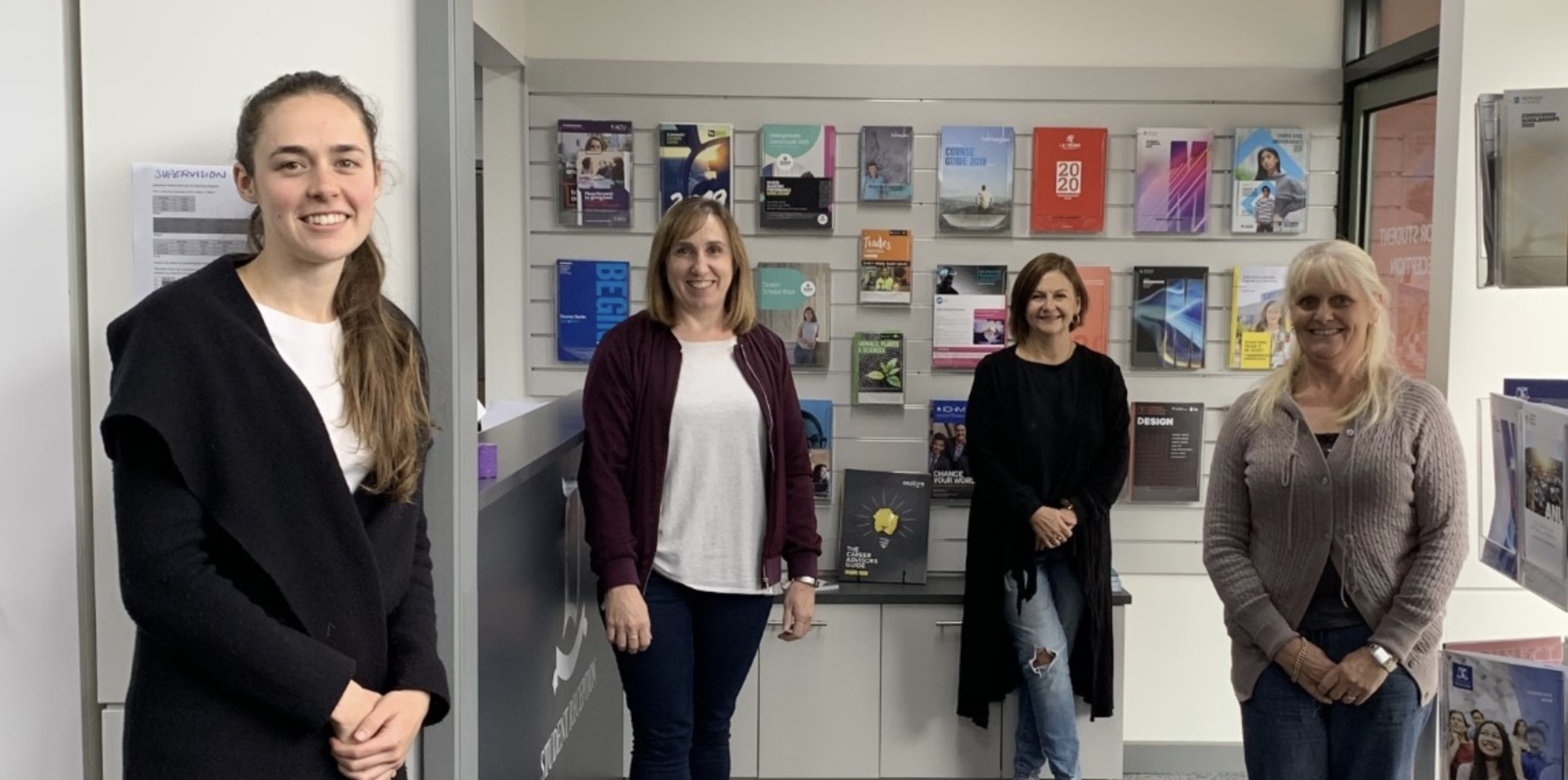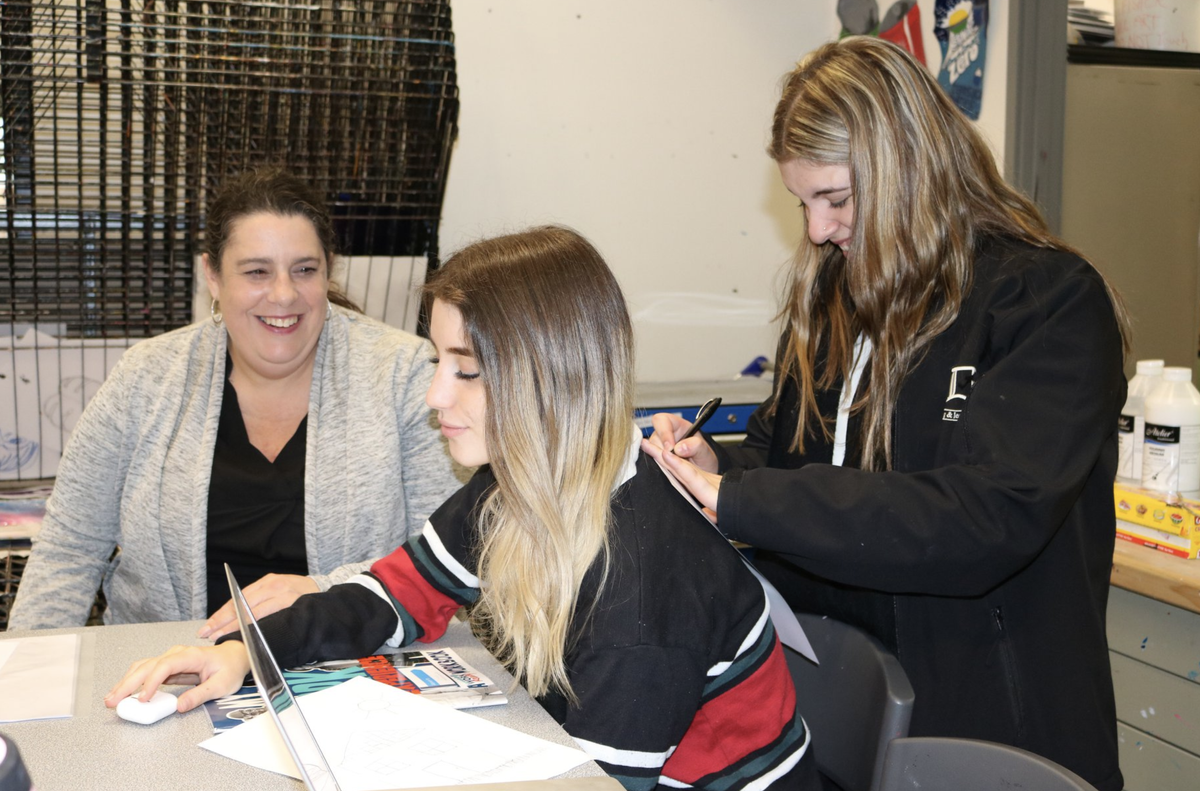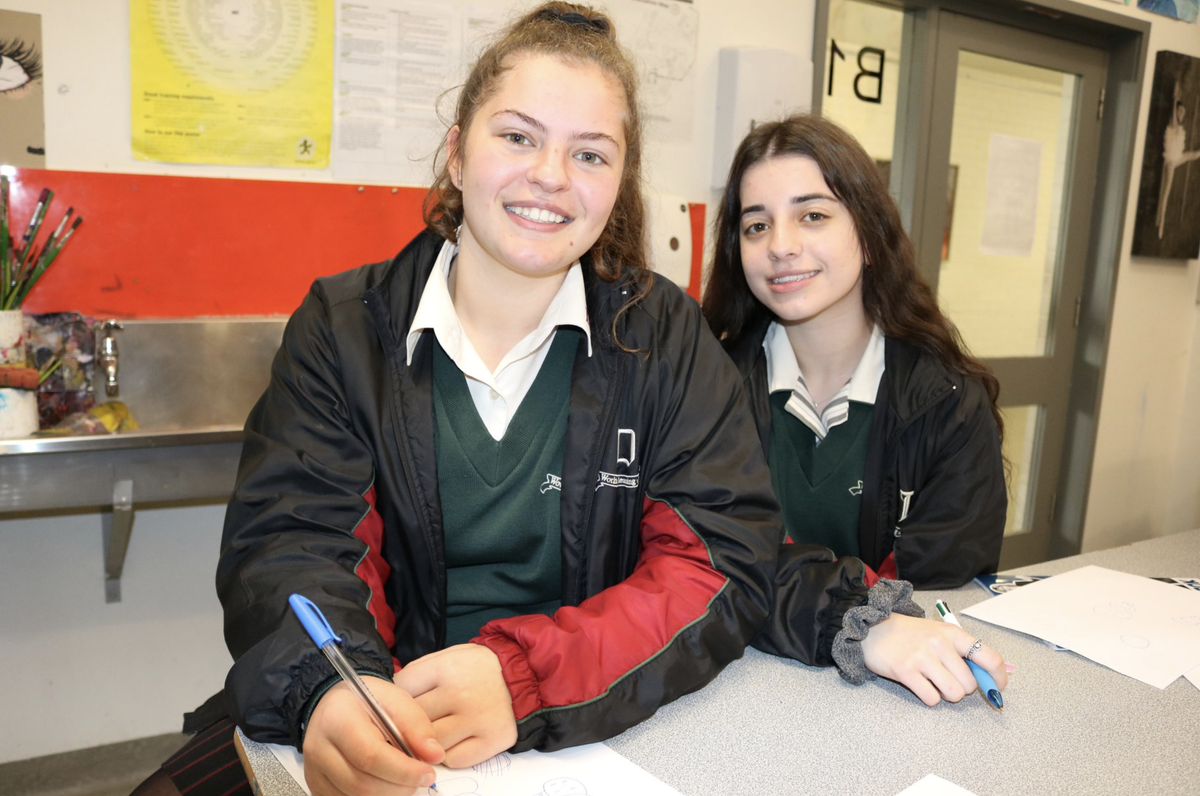Careers news

Year 10 Virtual Career Experience Week: Wrap up
Planning your future starts with knowing what the options are.
In lieu of work experience placements this year, most Year 10 students took part in a virtual program at school.
Activities included:
- Exploring career areas and completing individual work style profiles to discover more about themselves. Students used a digital platform called The Careers Department to inspire, challenge and shape their career plans.
- A formal safety induction was completed by our Facilities Manager, Tim Sprigg and students looked at the rights and expectations of employees in the workplace.
- Group activities built communication, teamwork, presentation and collaboration skills.
- Students listened to a range of professionals share insights about their industries including social work, construction and ICT.
The week concluded with students sharing some of their findings, celebrating their achievements and enjoying Krispy Kreme Doughnuts!
Subject selections 2021
The more you investigate possible future options now, the more satisfying your future pathways are likely to be.
As subject selection is coming up over the next couple of weeks for our senior students, it is time to think about the subjects that you will be choosing for the upcoming year.
When planning your subjects for senior years, it is important to choose subjects and courses that you are interested in, whilst keeping in mind the prerequisites you may require for any tertiary or VCAL pathway.
Even if you don't have a particular career in mind, it's important to put some thought into your future direction. Choosing subjects that align with your interests will provide a solid foundation for further studies or employment.
Dos and Don'ts of Subject Selection
Do:
- Think carefully about your interests. You will achieve better results in courses that you enjoy and are interested in.
- Be realistic about your abilities and skills. Listen to your teacher’s recommendations.
- Choose your courses at the appropriate level. EG: choose the level of maths recommended for you.
- Check the VCE subject prerequisites of any courses you are planning to study after completing school. Prerequisites can be more important than the ATAR! If you are considering a Science pathway, Mathematics is often a prerequisite for many Science courses, as are Biology, Chemistry and or Physics.
- Creative Fields Consider Art, Studio Arts, Visual Communication & Design (VCD) Media or Drama. Creative courses will require a folio or an audition for tertiary selection.
- VTAC’s course prerequisite list advises what subject you must consider undertaking for particular courses when entering tertiary studies.
- Consider whether you are choosing a subject for the right reason.
Consider if you dislike a subject, but it is a prerequisite for a course you are interested in. Will you enjoy the course?
- Have a spread of subjects.
If you choose too many subjects from the one study group, they may not all count towards your ATAR calculation equally. If you are doing all three Mathematics courses at unit 3 &4 only the best two will count entirely. The third will only count 10% no matter how well you do in the course.
Do not:
Choose subjects based on what your friends are doing, or your older siblings or parents have done, or who is teaching the subject.
Choose subjects on how they might be scaled. Subject scaling changes every year.
VCAL
The Victorian Certificate of Applied Learning (VCAL) is a Senior Secondary Certificate that focuses on the real world, applied learning experiences that aim to provide the skills, knowledge and attributes which will enable students to make informed choices for their future pathways.
A VCAL qualification provides a competency-based learning and a pathway to Technical and Further Education (TAFE), university (in certain circumstances), apprenticeships or traineeships or employment.
If considering a VCAL program, consider your learning style, interests and what motivates you. Think about the skills you may require in the future and begin planning different ways to achieve your goals.
Achieving your VCAL
There are three essential parts to the VCAL program:
- The school program
- Vocational Education and Training Program (VET)
- Structured workplace learning
See Mrs Ramsay for further information and guidance on the VCAL Program
VCAL: Things to consider
Think about your interests
You will achieve better results in courses that you enjoy and are motivated to complete.
Be realistic about your abilities and skills
Be guided by your teachers’ recommendations
Investigate the industry areas you are planning to study or work in after completing VCAL.
Are you wanting to secure an Apprenticeship or Traineeship? You may be able to enter some TAFEs based on you fulfilling all requirements of your VCAL certificate.
Consider whether you are choosing VCAL for the right reasons.
Have you researched employment prospects and what to expect from a career path post VCAL?
Remember the Careers Team are always there to help if you'd like any assistance with making your selections.
Donna Mckinlay
Careers Support
Latest DSC Career News





